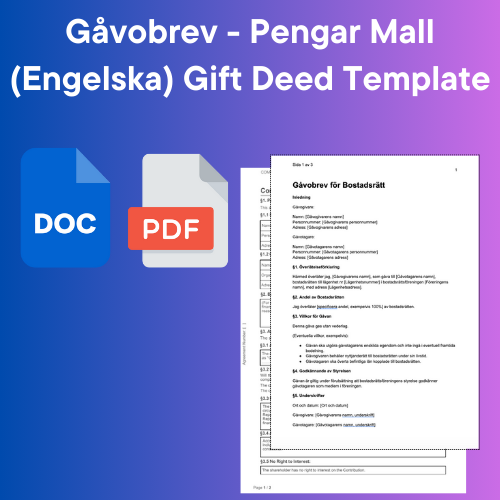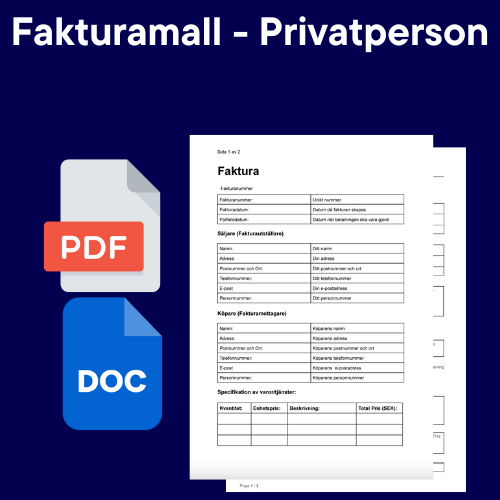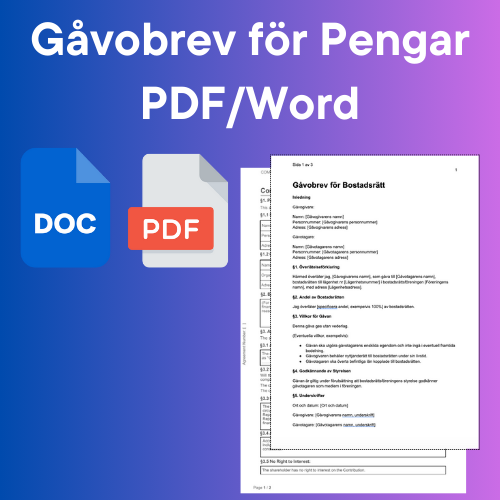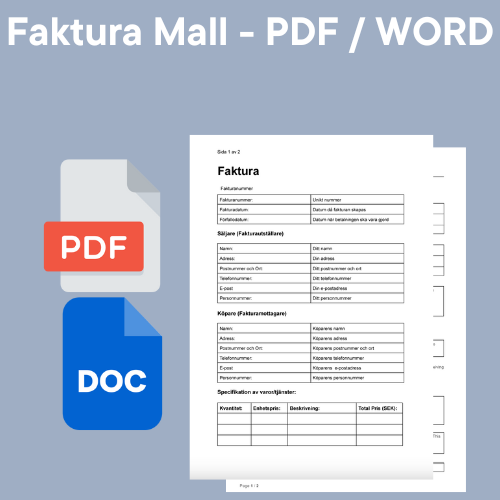Residential Lease FAQ - Comprehensive Guide
Share
Residential Tenancies FAQ: A Comprehensive Guide
Table of Contents
- What is a Residential Lease Agreement?
- How is a Lease Agreement concluded?
- Content of the rental agreement
- Termination of Lease Agreement
- Tenant's Rights and Obligations
- Landlord's Rights and Obligations
- Practice and legal cases
- Common questions
- Conclusion
What is a Residential Lease Agreement?
A residential lease is a contract between a landlord and a tenant that regulates the right to use a dwelling in return for payment of rent. This agreement is mainly governed by the Jordabalken (1970:994) chapter 12, also known as the Rent Act.
How is a Lease Agreement concluded?
A rental agreement can be entered into in writing or verbally, but a written agreement is always recommended to avoid future disputes. The agreement should specify all important details such as the amount of rent, payment date, length of the rental period and what is included in the rent.
Content of the rental agreement
- Lease period: The agreement can be fixed-term or valid until further notice. Unless otherwise specified, a lease is for an indefinite period, which means that it runs for an indefinite period of time.
- Rent: The amount of rent and payment dates must be clearly stated in the agreement. The rent may include various charges such as for water, electricity or internet.
- Security deposit: Sometimes the landlord requires a deposit as security for any damages or unpaid rent. This amount must be refunded at the end of the rental period if everything is in order.
Termination of Lease Agreement
For open-ended contracts, different notice periods apply depending on how long the tenant has lived in the home. According to ch. 12 Section 4 of the Land Code, the tenant has the right to at least three months' notice. For the landlord, the notice period may be longer, depending on the length of the tenancy and other factors.
Tenant's Rights and Obligations
- Maintenance and repairs: The landlord is responsible for keeping the property in good condition and for carrying out necessary repairs. The tenant must take care of the home and immediately notify the landlord of any damage or problems.
- Subletting: The tenant has the right to sublet the home, but this usually requires the landlord's permission. If the landlord refuses the permit, the tenant can turn to the Rent Board for review.
Landlord's Rights and Obligations
- Security of tenure: The tenant has a strong security of tenure, which means that the landlord must have valid reasons to terminate the lease, such as neglect of the home or repeated late payment of rent.
- Rent increases: The landlord cannot unilaterally increase the rent without first negotiating with the tenant or, if the parties cannot agree, have the rent increase reviewed by the Rent Board.
Practice and legal cases
Over the years, several legal cases and practices have been developed to clarify how the tenancy legislation should be interpreted. An example is a case where the Rent Board tried a dispute about a rent increase and found that the landlord did not have sufficient reasons to increase the rent without prior renovations or improvements to the home.
Common questions
- Can the landlord terminate the agreement early? Yes, but only under certain circumstances such as repeated mismanagement by the tenant.
- What happens if I don't pay the rent on time? The landlord can, after a reminder and non-payment, terminate the lease, which means that the tenant must move.
- Can I renovate or change something in the home? Usually, the landlord's approval is required for major changes or renovations.
Conclusion
Understanding a residential lease is essential to ensure a smooth tenancy and to protect the rights of both the tenant and the landlord. By knowing the legislation and which rules apply, both parties can avoid unnecessary conflicts and create a good tenancy relationship.
For more detailed information and specific legal cases, it is recommended to consult the Earth Code chapter 12 and other relevant legal sources, and to seek legal advice if necessary.




